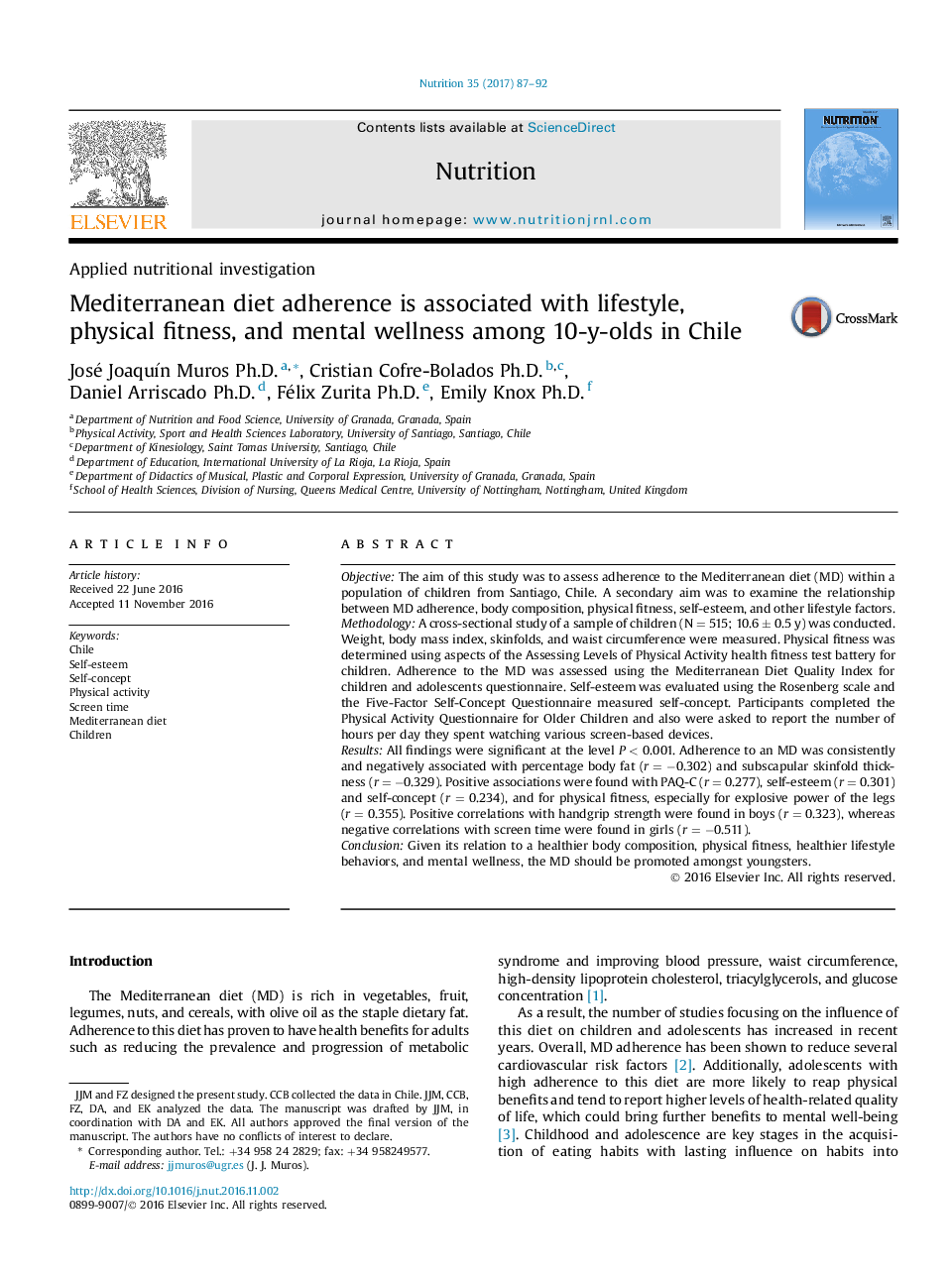| کد مقاله | کد نشریه | سال انتشار | مقاله انگلیسی | نسخه تمام متن |
|---|---|---|---|---|
| 5657008 | 1589662 | 2017 | 6 صفحه PDF | دانلود رایگان |
- The results of the present study demonstrated that adherence to the Mediterranean diet was moderate, similar to other European populations.
- An inverse association was found between percent body fat and the KIDMED scores.
- Positive correlations between the Mediterranean diet and fitness were found.
- Adherence to the Mediterranean diet was related to different factors of mental wellness.
ObjectiveThe aim of this study was to assess adherence to the Mediterranean diet (MD) within a population of children from Santiago, Chile. A secondary aim was to examine the relationship between MD adherence, body composition, physical fitness, self-esteem, and other lifestyle factors.MethodologyA cross-sectional study of a sample of children (N = 515; 10.6 ± 0.5 y) was conducted. Weight, body mass index, skinfolds, and waist circumference were measured. Physical fitness was determined using aspects of the Assessing Levels of Physical Activity health fitness test battery for children. Adherence to the MD was assessed using the Mediterranean Diet Quality Index for children and adolescents questionnaire. Self-esteem was evaluated using the Rosenberg scale and the Five-Factor Self-Concept Questionnaire measured self-concept. Participants completed the Physical Activity Questionnaire for Older Children and also were asked to report the number of hours per day they spent watching various screen-based devices.ResultsAll findings were significant at the level P < 0.001. Adherence to an MD was consistently and negatively associated with percentage body fat (r = â0.302) and subscapular skinfold thickness (r = â0.329). Positive associations were found with PAQ-C (r = 0.277), self-esteem (r = 0.301) and self-concept (r = 0.234), and for physical fitness, especially for explosive power of the legs (r = 0.355). Positive correlations with handgrip strength were found in boys (r = 0.323), whereas negative correlations with screen time were found in girls (r = â0.511).ConclusionGiven its relation to a healthier body composition, physical fitness, healthier lifestyle behaviors, and mental wellness, the MD should be promoted amongst youngsters.
Journal: Nutrition - Volume 35, March 2017, Pages 87-92
